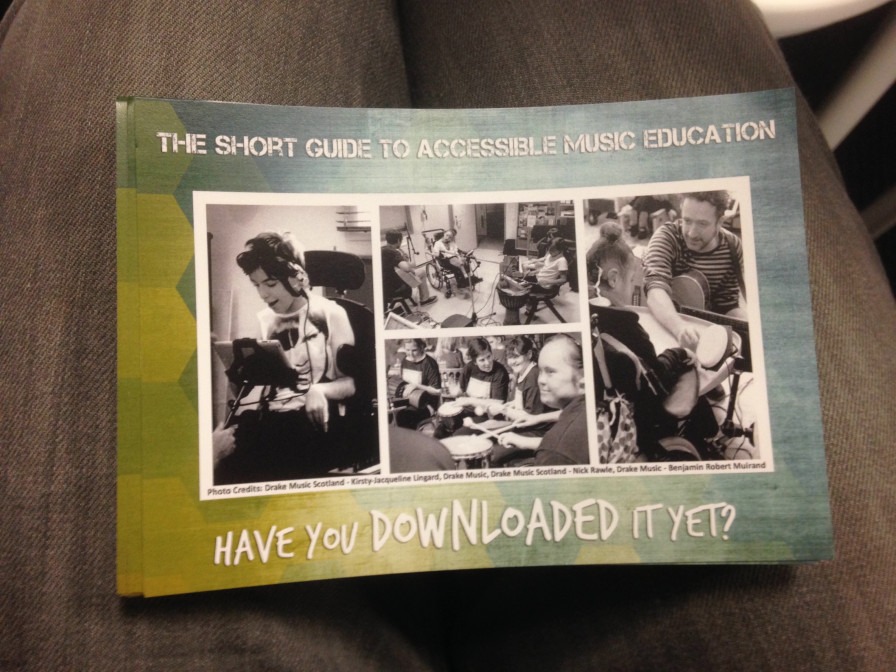The Short Guide to Accessible Music Education – what we’ve learnt

Three months on, what have Emma Lines, Jonathan Westrup and the Music Education Council learnt through producing the 'Short Guide'?
We launched the ‘Short Guide To Accessible Music Education’ three months ago at the Music Education and Drama Expo.
On May 10th, we will be launching an updated edition featuring 30 new entries (count them!) from across the UK. Watch out for that – and don’t stop emailing us with new information to include in our next (quarterly) update on August 10th.
Emma, myself and the Music Education Council have been truly heartened by the response from colleagues – it’s been a veritable ‘thumbs up’ with music hubs, music leaders and teachers all saying they are using and sharing the Short Guide with others.
We’ve learnt a few things in the past few months as we’ve monitored the Guide’s birth and subsequent development: here’s a few of them…
1. To date, we've had over 700 visitors of our Short Guide, including a strong international focus: people from 20 countries including Australia, United States, Kuwait, Hungary and Japan, to name but a few, have found our Short Guide! It’s easy to forget what a strong music education sector we have in so many ways and the interest in what we do from across the globe. I suspect our work making music accessible for all would be rated pretty highly on a global scale, despite the challenges we face and continue to try and solve.
2. There is a large area in England, roughly smack bang in the middle, called the ‘Midlands’. To our immense embarrassment, the Midlands slipped through our net in the first edition of the Short Guide.
Thankfully, Sophie Gray (SEN/D Adviser, Birmingham Music Service) has supported us in developing this section of the Guide in time for our update. If you work in the Midlands region, please get in touch using the Short Guide contact email on our website and let us know about your work!
3. There is a surprisingly big number of organisations in the UK dedicated to (or catering for, as part of their overall offer) making music with disabled children and young people, or those with Special Educational Needs (SEN)/ Additional Support Needs (ASN).
I say ‘surprisingly’ because the narrative has always been that of ‘patchy’ provision. Undoubtedly there is still lots to do; but we are heartened by the seeming growth in people with expertise and passion in this area. Even better would be to see increasing numbers of disabled people themselves in leadership roles in our sector.
4. It’s striking how much there is in common when it comes to approaches to working. We’ve read through dozens of websites now, sifting through the mission statements of countless organisations working with disabled/ SEN/ ASN young people and the language and ‘culture’ of approach is the same for many of them. So, you’d find strong resemblances, for example, between the methodology of Bamboozle in Leicester here , the Youth Music ‘SEN/D’ Quality Framework and the ‘Hymn Sheet’ OpenUp Music provide for schools participating in their Open School Orchestra programme.
I think we can continue to move towards agreeing standards for the quality and ethics of the music making we do, without that meaning that we arrive at prescribed methods.
5. Lastly, when Drake Music Scotland and Drake Music put the Short Guide together along with the support of the Music Education Council, our initial aim was simply to provide a ‘one stop’ place to access as much info as possible, however modest/ incomplete that list might be.
However, it’s become abundantly clear to us that the Short Guide is bigger than the sum of its parts; it’s a campaigning tool to advocate for all the amazing work going on in this area in the UK and a prompt for those with influence to re-double efforts towards a music education offer that is truly accessible and enjoyable for everyone.
